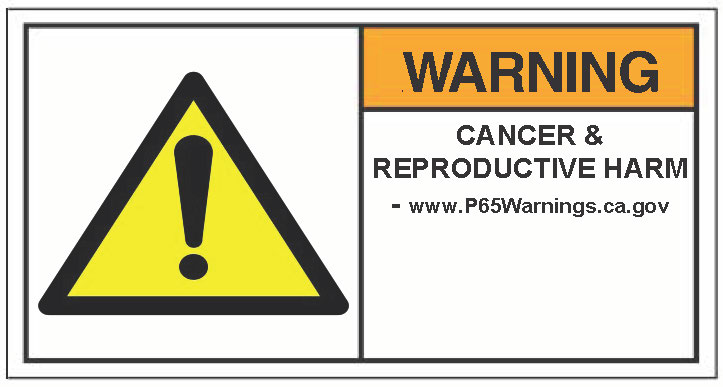
California’s Proposition 65 (Prop 65)—officially known as the Safe Drinking Water and Toxic Enforcement Act of 1986—is a regulation that requires businesses to provide clear warnings if their products contain chemicals known to cause cancer, birth defects, or other reproductive harm. While the law primarily applies to businesses operating in California, its reach extends far beyond state borders due to the size and influence of the California market.
Prop 65 presents compliance challenges and risks for automotive businesses, including parts manufacturers, retailers, and suppliers, if not properly addressed.
Understanding the implications of this regulation is essential for protecting your business from legal action and maintaining customer trust.
As regulations continue to evolve, 2025 brings new updates and stricter enforcement under Prop 65.
Key changes include:
Automotive businesses must stay proactive in adapting to these changes by conducting regular compliance audits, updating product labels, and working with regulatory experts to ensure continued adherence to Prop 65 standards.
With your PDM account, you can follow AutoCare’s best practices to provide accurate Prop 65 information within PIES (Product Information Exchange Standard). This ensures that your data aligns with industry standards, reducing compliance risks.
With PDM’s built-in validation, your product data is automatically checked to align with AutoCare’s recommendations and Prop 65 requirements. Managing attributes and images for compliance becomes an effortless task within your PDM account.
By leveraging PDM’s tools and automation, suppliers can seamlessly manage, validate, and distribute Prop 65 compliance information, reducing the risk of regulatory issues while maintaining accuracy and efficiency.
Prop 65 currently regulates over 900 chemicals, many of which are commonly found in automotive components, coatings, lubricants, and aftermarket parts. The list is updated annually, meaning businesses must stay vigilant in monitoring their materials and supply chains.
Failure to comply with Prop 65 can lead to hefty fines, with penalties reaching up to $2,500 per violation per day. Additionally, businesses may face lawsuits from the state of California or private enforcers, including consumer advocacy groups.
Since many automotive companies sell online or ship products to California, they must comply with Prop 65 regulations—even if they are based elsewhere. Non-compliance can lead to legal action, product recalls, or loss of sales.
Modern consumers are more conscious of product safety and environmental impact. Providing clear and compliant Prop 65 warnings helps maintain transparency and trust while minimizing the risk of misleading claims.
Many automotive products contain materials that fall under Prop 65 regulations, including:
Prop 65 compliance is a critical regulatory requirement for automotive businesses selling in California. While it may seem like a challenge, proactive compliance can protect your business from lawsuits, build consumer trust, and demonstrate a commitment to product safety.
By conducting chemical assessments, updating labeling, ensuring online compliance, and monitoring regulatory changes, automotive businesses can mitigate risk and maintain market access without major disruptions.
For businesses needing further guidance, consulting with regulatory compliance experts or legal professionals can help navigate the complexities of Prop 65.
Necessary cookies are absolutely essential for the website to function properly. This category only includes cookies that ensures basic functionalities and security features of the website. These cookies do not store any personal information.
Functional cookies help to perform certain functionalities like sharing the content of the website on social media platforms, collect feedbacks, and other third-party features.
Performance cookies are used to understand and analyze the key performance indexes of the website which helps in delivering a better user experience for the visitors.
Analytical cookies are used to understand how visitors interact with the website. These cookies help provide information on metrics the number of visitors, bounce rate, traffic source, etc.
Advertisement cookies are used to provide visitors with relevant ads and marketing campaigns. These cookies track visitors across websites and collect information to provide customized ads.
Other uncategorized cookies are those that are being analyzed and have not been classified into a category as yet.